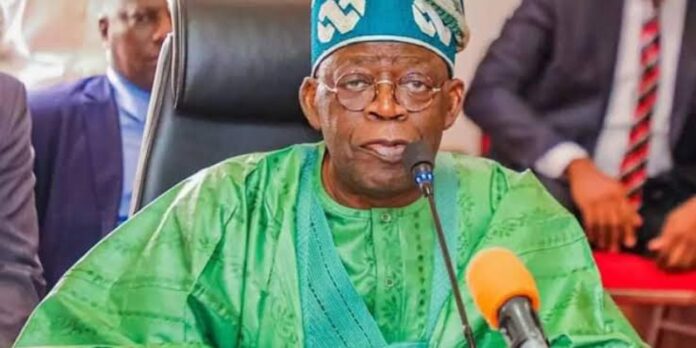ABUJA: President Bola Tinubu is set to visit the United States on Tuesday for a high-level diplomatic engagement amid rising tensions over U.S. President Donald Trump’s recent comments accusing Nigeria of permitting the killing of Christians.
presidential sources confirmed that Tinubu’s trip will focus on strengthening diplomatic and security cooperation between the two nations. During the visit, Tinubu is expected to meet U.S. Vice President James David Vance, who has reportedly been delegated by President Trump to lead discussions on behalf of Washington.
The meeting comes just days after Trump designated Nigeria as a “country of particular concern” over alleged religious persecution, a move that has sparked strong reactions from the Nigerian government and religious groups.
Tinubu’s spokesperson, Daniel Bwala, had earlier disclosed that both leaders share a common vision on counterterrorism and the global fight against violent extremism.
Both President @officialABAT and President @realDonaldTrump have a shared interest in combating insurgency and terrorism against humanity, Bwala said in a statement.
President Trump has supported Nigeria through arms sales, and President Tinubu has continued to utilize these resources effectively in the ongoing fight against terrorism.
He added that any perceived differences between both administrations regarding the nature of terrorist activities in Nigeria particularly the claim that Christians are being targeted would be discussed and clarified during Tinubu’s visit.
As for the differences as to whether terrorists in Nigeria target only Christians or all faiths, those issues will be addressed by both leaders either in the State House or the White House, Bwala noted.
President Trump had on Saturday warned that the United States could take military action if the Nigerian government fails to stop what he described as the killing of Christians.
If the Nigerian Government continues to allow the killing of Christians, the U.S.A. will immediately stop all aid and may go into that now disgraced country ‘guns-a-blazing, Trump said, adding that the U.S. Department of War had been instructed to prepare for possible intervention.
The remarks have stirred diplomatic unease, with the Nigerian Presidency quickly denying any form of Christian genocide in the country.
In a counter-statement, President Tinubu reaffirmed Nigeria’s constitutional protection of religious freedoms, describing Trump’s comments as a mischaracterisation of Nigeria’s diverse religious reality.
Nigeria stands firmly as a democracy governed by constitutional guarantees of religious liberty, Tinubu said. Since assuming office in 2023, our administration has actively engaged with both Christian and Muslim leaders to tackle security challenges affecting citizens across all faiths.
The President emphasized that his administration remains committed to promoting peaceful coexistence and upholding the country’s religious diversity.
The characterisation of Nigeria as religiously intolerant does not reflect our national reality, Tinubu declared. “Religious freedom and tolerance have always been a core tenet of our collective identity, and we oppose any form of persecution based on faith.”
Tinubu added that Nigeria will continue to work with international partners, including the U.S., to promote understanding and protect vulnerable communities across the country.
Our administration is committed to deepening cooperation with the United States and other allies in safeguarding the rights and safety of all Nigerians, he said.
The upcoming visit marks Tinubu’s first major engagement with the Trump administration since the U.S. election earlier this year. Analysts say the trip could be crucial in reshaping Nigeria-U.S. relations, particularly as both nations face pressure to address terrorism, human rights, and governance issues.
Political observers note that Tinubu’s diplomatic outreach may also serve to counter the growing perception that Nigeria is sliding into sectarian tension.
As of press time, details of the meeting’s agenda remain under wraps, but sources indicate that discussions will cover security cooperation, trade, and the protection of human rights.



